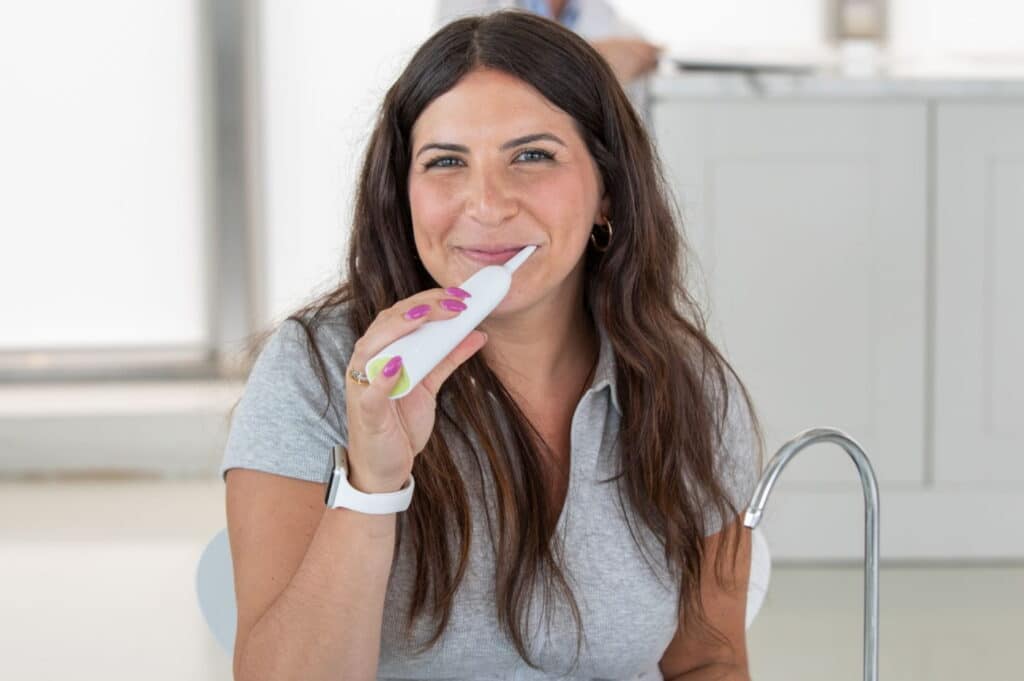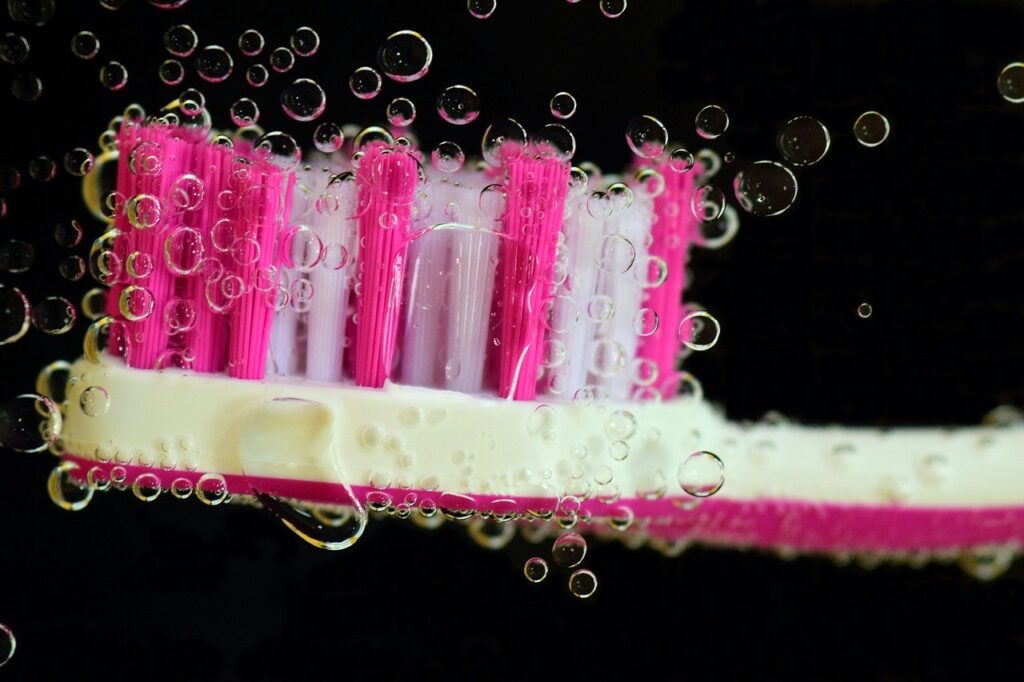Great dental health takes more than your usual checkup and daily brushing, but how do you take the next step to make your mouth the healthiest it has ever been? Talk to your dentist! It can be hard to know what you need to know, so use these 5 questions as a starting point and get ready for a healthy smile.

1. What Oral Health Products Should I Be Using?
Ask Your Dentist About Your Toothbrush
Soft or hard bristles? Electric? Sonic? Some of your toothbrush choices are a matter of preference, but your dentist will likely have a suggestion for what type of brush is the best for your mouth.
Finding out what your dentist recommends will get your mouth exactly what it needs and will save you from starting at the toothbrush aisle or wasting money on an expensive option you don’t really need.
Ask Your Dentist About Your Toothpaste
There are so many brands and varieties of toothpaste to choose from and they all promise different results. You can explore for yourself how your toothpaste works and talk to your dentist about what your mouth needs from a toothpaste.
Ask Your Dentist about Your Mouthwash
The same goes for different varieties of mouthwash–how your mouthwash works varies depending on what the ingredients are. Ask your dentist if you should be looking for a mouthwash that helps more with gingivitis, cavity prevention, or whitening.

2. Am I Brushing Correctly?
You might be thinking of course you know how to brush, but when was the last time you stopped and thought about your technique? The way you brush impacts how well you’re cleaning your teeth.
Instructions for brushing recommend using your brush at a 45 degree angle to your gums and using circular motions all around your mouth. You brush your teeth for 2 minutes and try to spend the same amount of time all over your mouth, including the back sides of your teeth.
Talking about the way you brush with your dentist can help you identify which spots you’re missing when you brush and how to change your routine to fix those errors.

3. Do I Floss Enough?
You might think you have a good flossing routine but then still have your dentist telling you to floss. Instead of getting frustrated by the constant demand for more flossing take this opportunity to talk to your dentist about flossing.
Your dentist can tell you exactly where they’re seeing problems that are a result of inadequate flossing. You might be flossing your front teeth perfectly but struggling to do enough in the back of your mouth. Ask your dentist to identify problem areas in your mouth and see if they have some tips on flossing in hard to reach areas.
If the problem isn’t with how much you floss you might need to change your flossing method instead. Your dentist can show you how to floss in a way that cleans the space between your teeth and gums as well as the gaps between your teeth.

4. Why Does This Hurt?
Ask Your Dentist About Pain Even If It’s Occasional
You might not think to talk to your dentist about something that doesn’t hurt when you’re at your appointment, but any pain you experience can be significant. Take note of moments of sensitivity and pain and bring them up with your dentist.
Tooth Pain
There are several possible reasons why your teeth hurt and your dentist is an excellent resource for figuring out which one you’re dealing with. Even if it’s a case of minor sensitivity talking to your dentist can help you make your teeth healthier.
Gum Pain
Depending on the cause of your gum pain, the solution could be as simple as flossing better or as serious as an impending root canal. Ask your dentist about any gum pain you experience so you both can get ahead of any issues and get your mouth back to healthy.

5. What Can I Learn From These X Rays?
For Yourself
Your response when your dentist puts up your x rays might just be to cross your fingers and hope to hear you have no cavities. While that’s great to hear, you can be getting more out of your x rays.
Dental x rays can tell you a lot about your dental health. Your dentist will identify issues, but asking questions helps you learn about what’s going on in your mouth. Ask your dentist if you have any early signs of:
- Disease
- Decay
- Infection
- Bone loss
- Tumors or cysts
- Cavities
For Your Kids
Along with keeping tabs on disease and cavities in your child’s mouth you can also check on their dental development by asking their dentist about the growth of their permanent teeth. Through the x rays their dentist can monitor the progress of adult teeth.
You can also ask your dentist about your child’s wisdom teeth. Your child could need all four out, have them coming in straight with plenty of room, or may not have any at all. Learning from your child’s x rays keeps you up to date on their dental health and helps you prepare for their future.

Asking your dentist these questions (and any others you have) gives you more control over and improves your dental health. Ready to ask some questions and get your healthiest smile yet? contact us today!

Dr. Elizabeth Wakim, DDS, is the founder of Enhanced Wellness. She’s a compassionate and highly-regarded dentist with her own practice in Washington, Pennsylvania, known for providing modern, comprehensive dental care, botox and facial aesthetics with a focus on patient comfort and anxiety reduction, serving general, cosmetic, and pediatric dentistry needs.









